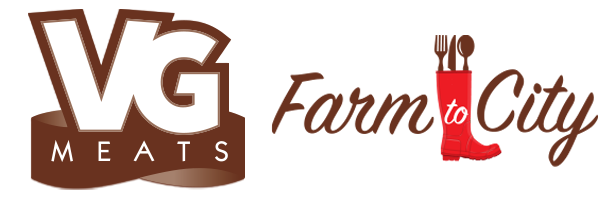What consumers need to know about food fraud, false advertising and local meat

When you’re passionate about something, you may feel compelled to share that passion with the world. This is a feeling we understand very well both as a family and as a business that has dedicated decades to producing high quality local meat. Oldest brother Cory has spent years learning about regenerative agriculture and implementing these methods on our farms. Kyle has supported incredibly high standards of quality at our retail stores along with Chad, who has maintained the family tradition of butchering with great skill and care. Youngest brother Kevin has dedicated himself to the science of meat, perfecting the Tenderness Tested system that truly sets us apart.
We love what we do, and we care about the integrity of local food production. So, when we see others hopping on the “farm to fork” bandwagon with nary an actual farm in sight, we have concerns. Today, we’d like to share some thoughts on food fraud, misleading claims in advertising and how consumers can avoid “cheap meat” that’s being passed off as local.
Transparency, language and knowing where your meat comes from
At VG Meats, our products are fully traceable with a clear point of origin. This means that we can tell you exactly where every cut came from down to the small farm it was raised on. We’re not “locally sourced”—anyone can say that, and it’s not regulated otherwise—we are absolutely, truly local. We own and operate our farms and work with select partners who share our exceptionally high standards and commitment to regenerative outcomes.
Unfortunately, many grocers slap the term “locally sourced” on just about anything. They may have a sales office in Hamilton where their team “sources” food from all over, making it “locally sourced” because the work was done in that region. They can even use the word “farm” in their name, implying that they’re farmers when really, they’re salespeople buying and distributing meat. It’s sneaky, in our opinion, but it’s allowed! But when we say local, we mean it—everything we sell online and in our retail stores is produced here in Ontario, processed by our in-house butchers and packagers, sold in our family’s retail stores and hand-delivered to you.
Watch out for red flags
There are plenty of great small farms in Ontario that produce local beef, poultry, pork and lamb. When another business is doing things right—treating their animals well, caring for the environment, offering a quality product and being transparent about their products, location and business model—we aren’t threatened. In fact, we do our best to support like-minded food producers because at the end of the day, they’re helping us put Ontario beef, poultry, lamb and pork on the map. We are all able to thrive together and collectively, offer better food to local communities while supporting the land and waterways we depend on. To put it simply: the good guys aren’t our competition because there’s room for everyone. But those other guys? The ones who claim to be local while selling cheap cuts of meat from all over the country (or even the world)? Honestly, we’re not big fans!
As a consumer, it’s important to know the difference between high quality local meat and a business that’s misrepresenting itself online and to your family. When it comes to identifying and avoiding food fraud here in Ontario, look for these red flags:
- Products are “locally sourced” rather than produced here in Ontario (“locally sourced” just means that they were sourced by a local person—the product itself could be from the U.S. or even overseas). Look for signs on the packaging as to where the product was produced. There will be addresses, a plant number or similar information. Or, simply ask the questions because there are fewer and fewer producers out there.
- A business claims to sell local meat but when you Google their address, it’s a sales office rather than a farm—and in fact, they don’t actually own a farm.
- They don’t have a retail storefront because their product is being shipped in from all over and delivered “locally” in a variety of locations across the province.
- Manipulative language such as “inflation-free” is used to entice consumers to buy inexpensive, lower quality meat that is presented as local.
- They use MLM-style marketing methods wherein you’re dealing with salespeople and websites instead of farmers and butchers.
- Their offers seem too good to be true—listen to your gut!
This is just a small list of warning signs consumers should be on the lookout for. If you have any questions or would like to know more about food fraud, we welcome you to contact us.
Trust in VG Meats
VG Meats is a fourth generation family business run by four brothers. We operate a family farm in Norfolk County where our oldest brother lives with his family. Our parents live on another nearby family farm and our grandmother is just a stone’s throw away from our original retail location. We don’t have a sales office—we work on the farm, at our processing plant and in our retail locations.
Rather than creating massive cattle operations, VG Meats has built a network of small farms that utilize high touch, high care methods. As we expanded our brand ecosystem to include Rowe Farms and Olliffe, we ensured that these same methods are used throughout those lines of business: small, local farms run by real farmers, and exceptional butchers who respect the tradition of their craft.
We’re proud of the work we do and we have no secrets. We can answer questions thoroughly and without hesitation because we are what we say we are. If you’d like to learn more, please contact us—we welcome the opportunity to share more information about our farms, our products, the regenerative agriculture process and our commitment to high quality local food.


